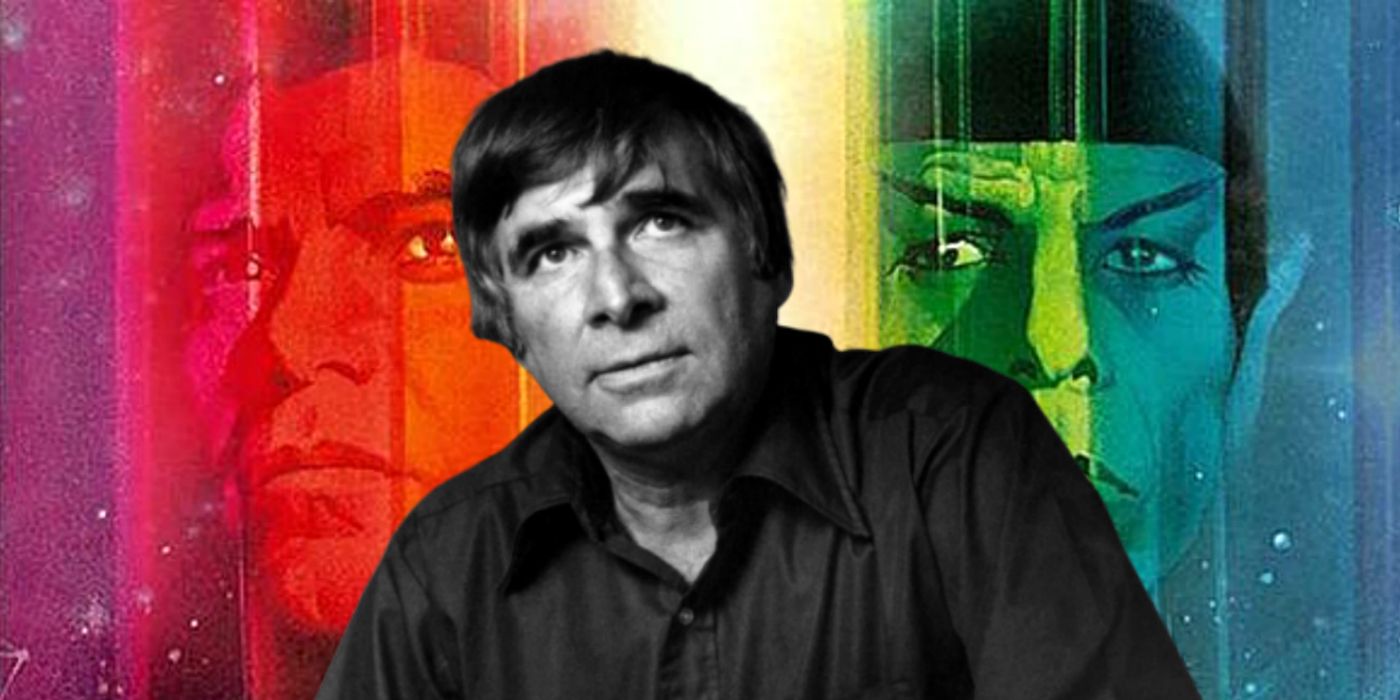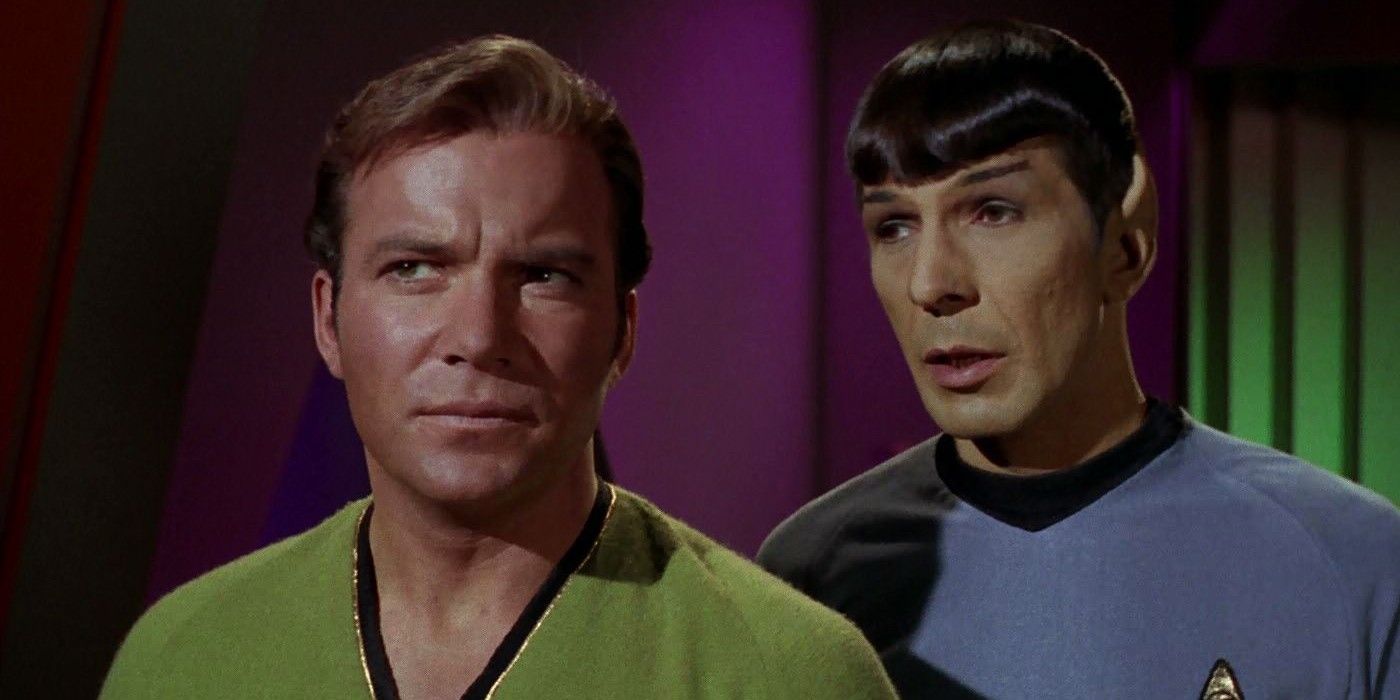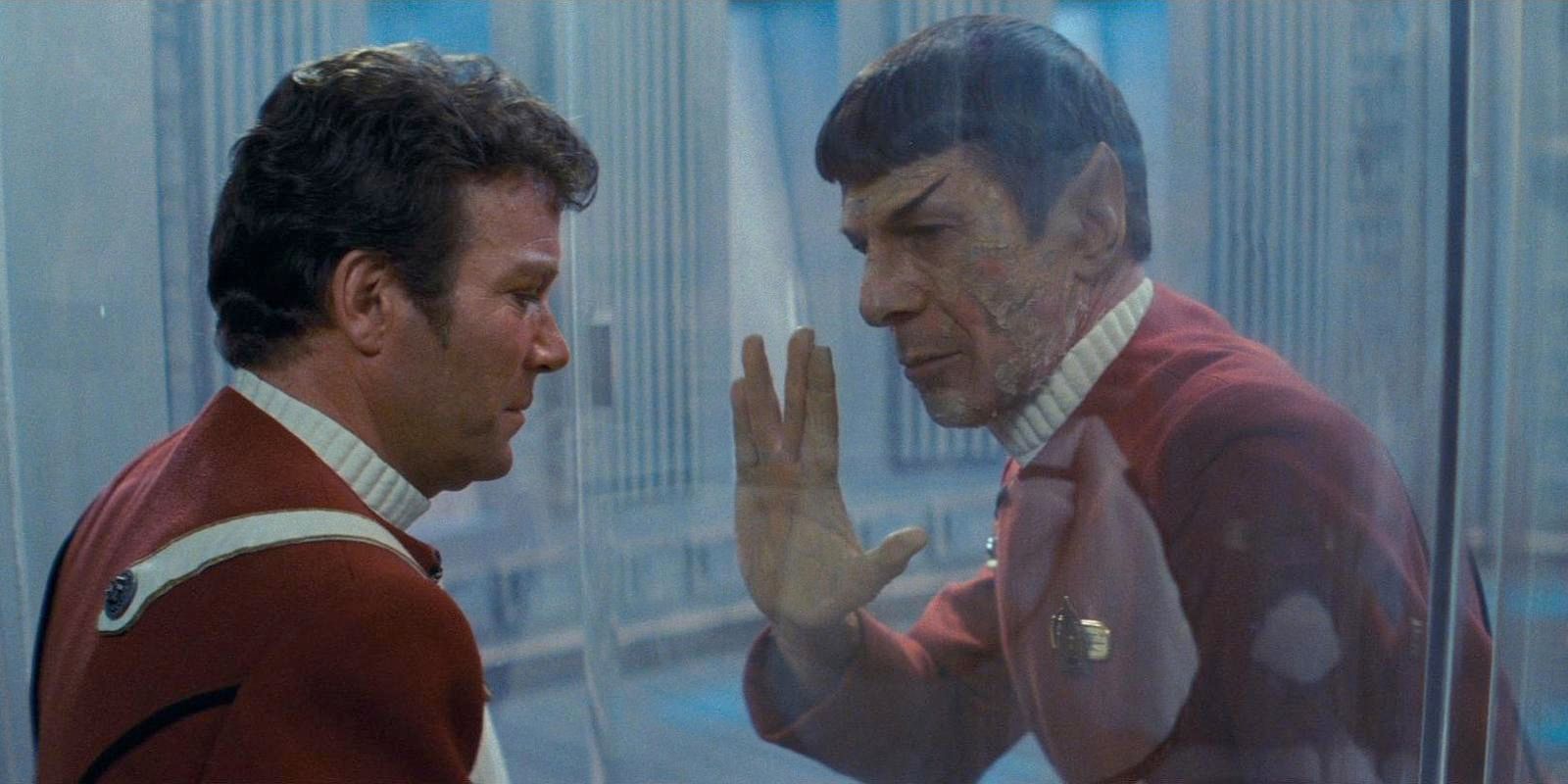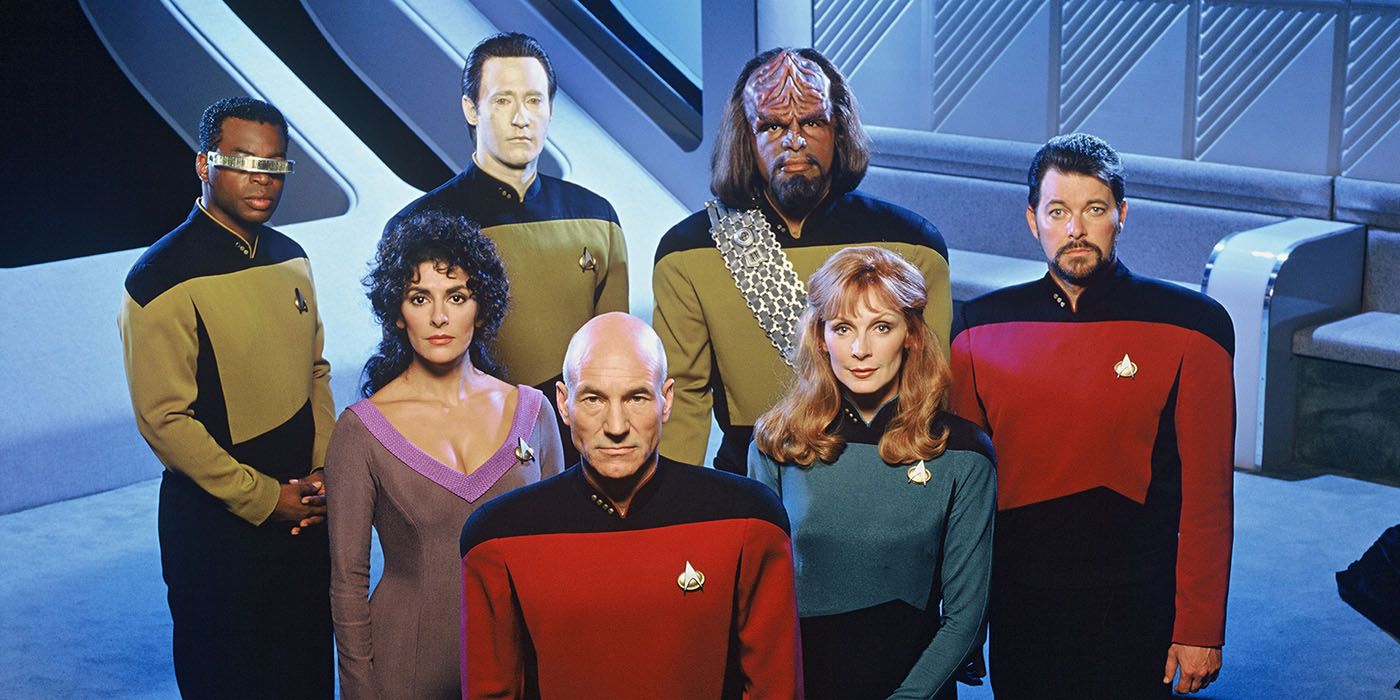Gene Roddenberry's Star Trek has been one of the most enduring pop culture franchises of the last fifty years - so how did its creator manage to lose control of it so many times over his life? A seasoned TV veteran, Roddenberry created Star Trek for NBC in 1964, though the show wouldn't make it to air until 1966 due to a false start pilot starring Jeffrey Hunter as Captain Christopher Pike; NBC was unimpressed with Roddenberry's script, which they deemed too cold and dull. Once William Shatner was cast as the swashbuckling Captain James T. Kirk, the show found its identity and became a cult hit before its premature cancellation after its third season in 1969.
That, of course, would not be the end of Star Trek. Thanks to the show's unprecedented success in syndication - as well as the public's renewed interest in science fiction thanks to Star Wars - Star Trek was revived for the big screen in 1979, and some version of the franchise has been in nearly constant production ever since. Roddenberry himself has become an important part of the mythology of Star Trek; dubbed "the great bird of the galaxy," Roddenberry was seen by Star Trek fans as more than a television writer, but as a genuine visionary who rejected the nihilism of much science fiction in favor of a hopeful, utopian future for humanity.
But Roddenberry's legacy is far more complicated, riddled with petty corporate squabbling, long simmering vendettas, and personal demons to spare. Indeed, most of what's considered the best of Star Trek at this point not only wasn't written by Roddenberry, but was actively opposed by him in private and, on several embarrassing occasions, in public. The legacy of a man as complicated as Roddenberry deserves a more nuanced analysis, beyond the simplistic myth he and others spent years building around him.
Roddenberry Walked Away From Star Trek: The Original Series
Make no mistake, Roddenberry was a genuinely talented television writer and producer, and he was directly responsible for the legacy of Star Trek: The Original Series. Along with trusted lieutenants like Gene Coon and Dorothy Fontana, Roddenberry shaped the characters, worlds, and progressive morality that lit up the imaginations of so many young viewers in the 1960s, and continues to do so today.
However, by the end of its second season, Star Trek: The Original Series was at something of an impasse. NBC realized the show had potential, but the ratings were still anemic and it barely managed a third season renewal. A promised move to Monday nights never materialized, and the show was confined to the Friday night "death slot" for its third year. To add insult to injury, the show's production budget was scaled back; season three is noticeably cheaper looking than the first two seasons. Justifiably enraged by NBC's bungling and burned out from producing the first two seasons, Roddenberry voluntarily took a step back from production of the third season, handing over the day-to-day management of the series over to producer Fred Freiberger. The creatively weakened TOS would end after that low regarded, little watched third season.
Roddenberry's Star Trek Movie Was A Failure
Roddenberry's career largely stalled after Star Trek: The Original Series' cancellation, and he spent the 70s making his living on the convention circuit, where his "visionary" reputation was born in earnest. When Paramount was ready to revive Star Trek for the big screen in the late 70s, Roddenberry was asked to return and write the script. The ultimate result was Star Trek: The Motion Picture, a film that ironically suffered from essentially the same criticisms as Roddenberry's original Star Trek pilot.
Star Trek: The Motion Picture was largely viewed as a failure - the movie was long, dull, and lacked the humor and character beats that had made The Original Series so endearing. It was also incredibly expensive; while it grossed $139 million - nothing to sneeze at in the 1970s - the film's gargantuan budget and production nightmares led Paramount to reconsider their approach to the franchise. One of the first decisions they made was to ditch Roddenberry; not only was his script for the film a mess, he had become increasingly difficult to work with. Producer Harve Bennett was given control of the next film in the franchise. Bennett hired writer/producer Nicholas Meyer to make that film, which would become the critically and financially successful Star Trek II: The Wrath of Khan. Bennet and Meyer - along with star and director Leonard Nimoy - would oversee the Star Trek film franchise in some capacity for the next decade, through Star Trek VI: The Undiscovered Country, the final film to feature the TOS cast.
Never a particular fan of the high road, Roddenberry wore his contempt for the film sequels on his sleeve for the rest of his life. He and Meyer infamously fought over the identity of the Federation traitor in The Undiscovered Country; Meyer wanted Lieutenant Saavik, the Vulcan officer introduced in The Wrath of Khan, to be in on the conspiracy to assassinate the Klingon Chancellor. Roddenberry objected to an ostensibly noble Starfleet officer like Saavik betraying both Starfleet and her shipmates, to Meyer's loud and admittedly unkind protests (it ended up being a moot point, as Kirstie Alley was unavailable to return to the role).
Roddenberry saved perhaps his most pointed criticism for the William Shatner-directed Star Trek V: The Final Frontier. Generally acknowledged as the worst Star Trek film, Roddenberry took his usual digs at the films a step further, claiming portions of The Final Frontier are "apocryphal." Roddenberry had never been particularly kind about the films, but that was the first time he'd claimed one wasn't part of Star Trek canon. Not surprisingly, those comments damaged his relationship with Shatner and came to embody Roddenberry's modest, vitriolic role in the Star Trek film franchise.
The Next Generation and Roddenberry's Final Exit
When Roddenberry learned in the late 80s that Paramount was planning on producing a new Star Trek TV series, he demanded to be part of it. Figuring he'd be something of a goodwill ambassador for this new version of the franchise, Paramount happily agreed, and Roddenberry would develop that project into Star Trek: The Next Generation. While The Next Generation is thought of now as the equal of - or even superior to - The Original Series, at the time fans were incredulous at the idea of a Star Trek series without Kirk and Spock. TNG's first two seasons are, at best, a mediocre imitation of The Original Series, with all of TOS's adventurous fun sanded off in favor of largely dull thought experiments and morality tales.
By this point in his life, Roddenberry had internalized much of the "great bird of the galaxy" visionary nonsense that had been blown up his aft nacelles since the 70s, but all that high minded idealism that fans ate up at conventions translated to some truly unwatchable drama on Star Trek: TNG. And while Roddenberry was only in his mid-60s by the time of TNG, he had been abusing drugs for the majority of his adult life and was in rapidly declining health by the 80s. By TNG's third season, Roddenberry's health had diminished to the point that he had effectively been replaced by producer Rick Berman and head writer Michael Piller while he took on something of an emeritus role in the show's production. Not coincidentally, that third season was the point where Star Trek: TNG became a classic in its own right. Roddenberry was largely too ill to push back against the changes he didn't agree with on the series, and Berman proved himself far more diplomatic in his dealings with Roddenberry than Nicholas Meyer had been, resulting in a series virtually everyone could be proud of.
Gene Roddenberry died in 1991, the 25th anniversary of Star Trek, and arguably the peak of the franchise's popularity. He was again almost universally acknowledged as a visionary upon his death, a man whose worth transcended that of the average television show writer. But while Roddenberry was a vocal advocate for the heights humanity is capable of reaching at its best, he himself came quite a bit short of those ideals. In the end, that may be Roddenberry's most enduring, earned legacy - humanity is far from perfect, and likely always will be, but if we seek to better ourselves and the world around us, we can ultimately find understanding and forgiveness...as long as we don't lose Paramount too much money.




